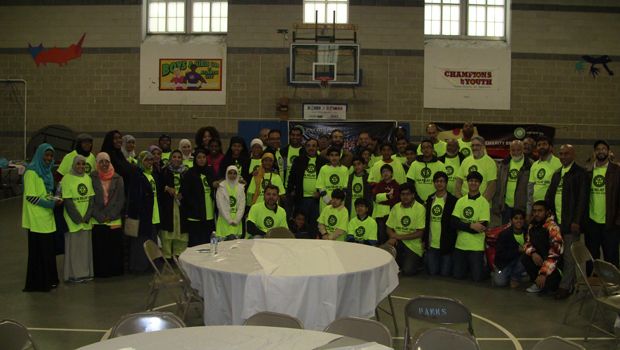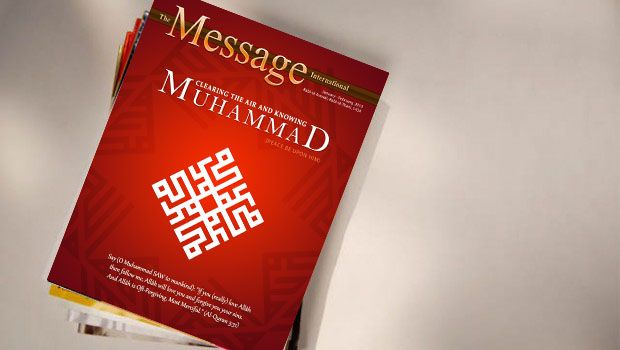“Time is money!”This is nothing short of a mantra in America and in many other parts of the world. It’s understandable that people are concerned with earning a living and having enough money to survive, to succeed.But what about the people who spend substantial time, talent, and wealthnot for self-interest or personal advantage,but for the benefit of other human beings and betterment of the society?Are theyfoolishly unconcerned about their own lives? No, they possess higher values and their altruism moves them to act, and they attain a loftier position among us.
It’s important to mention that volunteerism is valued highly byall religions, cultures, and secular society. However, no system or group gives volunteerism as much importance as Islam does.In the Quran, Allah (SWT) says, “And whoever volunteersto do good—then, indeed Allah is knowing and appreciative” (Al-Baqarah, 2:158).If we look at history, we also findthat all Prophets voluntarily gave of their time and efforts to bring qualitative changes in the society.For instance, Prophet Musa volunteered to water the flocks of Prophet Shuaib’s daughters when he noticed they were not able to do so. The Quran says: “…and when he [Musa] came to the well of Madyan,he found there a crowd of people watering [their flocks] and he found apart from them two women driving back their flocks. He said, ‘What is your circumstance?’ They said, ‘We do not water until the shepherds take away[their flocks]; and our father is an old man.’ So he watered [their flocks] for them(Al-Qasas: 23-24). Another example was of Dhul-Qarnayn who offered to set up a dam between two mountains for the sake of people who sought his assistance. Allah says, “They [the people]said,‘O Dhul-Qarnayn, indeed Gog and Magog are great corrupters in the land. So may we pay you a tribute on conditionthat you erect a barrier between us and them?’” (Al-Kahf94). He turned down their proposal and built the structure voluntarily, saying “…that in which my Lord has established me is better [than what you offer], but assist me with strength. I will make between you and them a dam” (Al-Kahf: 95).
The moral mandate of Islam requires that a Muslim be kind, considerate, and compassionate to his or her fellow human beings
Prophet Muhammad (peace and blessings of God be upon him) is reported to have said, “Among people, the one who is most beneficial to humanity is also most beloved in the sight of Allah.”In another hadith, the Prophet (pbuh) said, “Every Muslim has to give in charity.” The people asked, “O Prophet of Allah! If someone has nothing to give, what will he do?”The Prophet said, “He should work with his hands and benefit himself andthen give in charity [from what he earns].” The people further asked, “If he cannot do even that?” He replied, “Then he should command good and forbid evil and this will be regarded as charitable acts.”(Bukhari, Muslim). Venerating such acts of volunteerism, Prophet Muhammad also said,“Whoever removes one of the hardships of a believing soul, Allah will remove from him one of the distresses in the hereafter. Whoever solves someone else’s problem, Allah will make things easy for him in this world and in the life hereafter. Allah is ever assisting his servant as long as he is assisting his brother” (Sahih Muslim). What these prophetic statements reveal is that volunteerism, acting in charitable ways, is a sublime characteristic of the Islamic personality. The moral mandate of Islam requires that a Muslimbe kind, considerate, and compassionateto hisorher fellow human beings. Love of God veritably entails loving and serving God’s creation.
The significance of volunteerism in Islam can also be understood from a Quranic commandment wherein Allah (SWT) cautions the believers: “You cannot attain to righteousness unless you spend [in charity] out of what you love” (Surah Al-Imran, 3:92). In other words, there is no piety in Islam without benevolence and charity. In Surah Al-Baqarah, verse 272, Allah(SWT) tells us: “Whatever wealth you spend in charity, it is to your own advantage; provided you give so asto seek the pleasure of Allah. Whatever wealth you spend for the sake of Allah will be paid back to you in full, and you will not be wronged.” In Surah Al-Imran, verse110, Allah (SWT) further declares to believers:“You are the best people ever raised up for the good of mankind;you enjoin what is good and forbid evil and believe in Allah.” Prophet Muhammad also exhorted: “The highest level of the intellect, after belief in God, is to be of service to the creation.”Prophet (pbuh) thus advised usto be not only generous but also merciful. He said: “If you are not merciful to people, Allah will not be merciful to you.”
Everyone, of course, should be concerned with his/her own life. We all want to survive and thrive. Islam points our attention, however, to altruistic values that should be interwoven into the fabric of our inner beingsand our daily lives –acting in charitable ways, volunteering to do good for the sake of Allah– energetically striving to create a more benevolent and just society.





